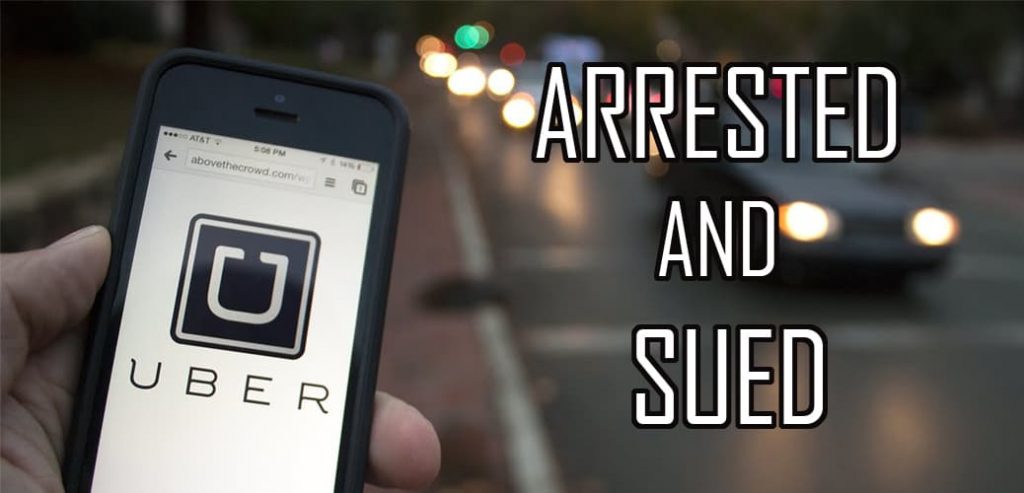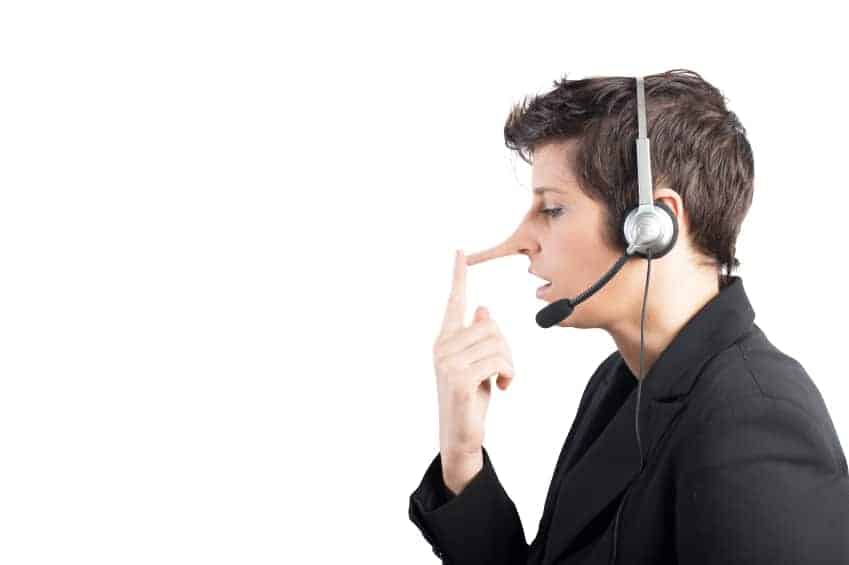For one reason or another, there is a good chance you have heard about mega company Uber before.
Perhaps this is because you have used their service when you are in the city and need a ride home. Perhaps it is because, while you have never used them, everyone is always suggesting you “Uber it,” in the same manner they might have suggested that you “Google it.”
Then again, maybe you have heard of them because they seem to be in the news a lot because of some alleged trouble they have gotten into. This post is about yet another one of those situations.
The Uber Platform
For starters, let us go over a refresher about just what Uber is. So how it works is that you are in one of the 300 plus cities around the world that offers the service. You need a ride, but don’t want to use a cab. So you log onto the Uber app, say where you are and where you are going and soon a driver shows up driving their own car to take you there.
In theory, this works for everyone. An independent driver gets to make some extra money in their spare time. You get to where you need to be. The company makes a lot of money. Everyone wins.
Of course, this does not apply to cab drivers, but those are the competitors. So no worries there. But everyone else should win, right? Apparently not.
Because, despite how it might work on paper, everything is not all sunshine in Uber-land. Every other day, there seems to be some new legal problem facing the business. In fact, despite their success, you might not want to use them as your business model mentor.
Uber’s Controversies
Before getting into the newest settlement from Uber, let’s see just a few of their many, many controversies.
Problems with Drivers
One thing you might hear when listening to stories about Uber are stories about crazy drivers, crazy passengers, or crazy people pretending to be drivers. For example, here are a few situations that have popped up over the years:
- A Detroit man was recently charged after robbing and murdering an Uber driver who answered a request for a ride.
- A woman in Los Angeles was kidnapped and sexually assaulted by a man who claimed to be an Uber driver.
- An Uber driver in Manhattan used his Uber services to facilitate his drug business.
- A Michigan Uber driver went on a shooting spree, killing six and wounding four.
I could keep going with these stories. (Though to be fair, I could also tell you even more stories about people who used Uber and safely made it to their final destination without any problems.) However, the point is that there are some safety risks involved in using Uber services.
This brings up some problems of liability for the company. For example, how much control does and should Uber have over its drivers? They are independent contractors with Uber acting primarily as the middle man. However, doesn’t Uber have some responsibility to their customers?
Protests
Another thing Uber has to deal with regularly are protests. Cab drivers and companies, as you might be able to imagine, do not like Uber or its business platform. Those behind the protests argue that services such as Uber hurt taxi businesses by going around local licensing laws that apply to other driving companies, as well as make it easier to avoid safety regulations.
Protesters claim that, not only does the ability to avoid these laws cause many of the safety issues associated with passengers and drivers as discussed above, but it also bleeds dry the cab industry since Uber is able to offer better rates and more convenient services.
Protests around the world have come in the form of traffic jams as cab drivers take to blocking the roads and driving at slow rates in order to make their points. In the United States, Uber drivers planned a protest earlier this year to impede transit at the Super Bowl.
Lawsuits
To go along with all the protests, are the lawsuits. According to Wikipedia, Uber is involved in at least 173 lawsuits across the world. Here are some of the highlights:
- There is a class action from drivers claiming to be misclassified as independent contractors, who are demanding higher wages. (Because of the independent contractor status, workers make less than minimum wage. One worker claims to make less than $5 an hour once expenses are added in.)
- Many similar suits have popped up since the first class-action was certified.
- 50 suits were filed last year against Uber. Its closest competitor, Lyft, was sued only a third that amount. Airbnb, who was second behind Uber as the most valued startup, was sued only five times.
- A lawsuit on background checks was just settled in California. We will get more into that a little later in this post.
Laws and Regulations Against Uber
Over the last several years since Uber has risen in prominence, countries around the world and cities and states around the country have worked to implement laws and regulations dictating how companies like Uber can operate.
Is it a taxi service or is it a ride share? The answer makes all the difference for taxing and regulating purposes. In some places, such as Uber and Las Vegas, Nevada, these companies are banned altogether.
Uber Executives
Last year, in Paris, the world watched as the end of an Uber protest led to the arrests of two Uber executives. The crimes they were alleged to have committed include running an illegal taxi service and concealing illegal documents.
Previous to the arrests, the company had been found to be illegal but could not be shut down since they helped pay drivers’ legal fees to help motivate them to keep working. Jail time might not be able to deter the company either, though.
The Reputation
Along with lawsuits, much of the company’s business practices have also led to negative reputations. While many people still use the company, and are likely to continue to do so as the rates are the most economically friendly, many others have been scared off by the horror stories they have heard.
However, apart from the customers, Uber has developed a bad reputation with governing bodies, competitors, and the media as well.
Some alleged examples?
- Uber is said to have hired contractors to request Lyft rides only to try to recruit the drivers away from their competitors.
- It is said that they hire people to dig up dirt on those journalists who say bad things about their services.
- Workers say they pay way below minimum wage salaries by using the minimum wage classification.
- They operate in the face of laws saying they cannot (see the above France executives story for an example.)
This Story and Its Settlement
All of this leads me to the purpose of this post this week: Uber has just agreed to settle a California lawsuit regarding background checks for somewhere in the vicinity of $10 to 25 million.
The Story
Uber claims (or at least claimed) to be the “safest ride on the road.” Its background check process was documented on its website, and it was said to lead the industry. However, the cities of Los Angeles and San Francisco do not think either of those claims are true.
In 2014, the cities sued the car-ride service claiming that it misleads customers by letting them think the background check process was more thorough than it really was. Specifically, the cities claim that the company’s background checks do not match the standards used by taxi companies.
Taxi drivers must undergo fingerprint checks that look for past convictions. Uber drivers do not have to do this. Instead, their names are run through criminal charge databases and motor vehicle files going back seven years.
Uber claims that on top of this check, passengers are able to rate drivers so that the company can weed out unsatisfactory workers that way as well.
The Settlement
Because this is a settlement, the company does not admit that they did anything wrong. However, they did agree to the following terms:
- They will no longer call themselves the safest ride on the road.
- They will pay the cities $10 million in the next 60 days.
- If they do not comply with the terms they agreed to follow over the course of the next two years, they will pay an additional $15 million.
They also agreed to only operate their UberX services at airports where it had permission to do so.
This settlement is on top of a different settlement for $28.5 million reached earlier this year where, in part, it also agreed to call its “safe ride fee” a booking fee instead.
Uber’s competitor, Lfyt, settled the same lawsuit last year for around $250,000.
Final Thoughts
Success on its own can be fleeting. Right now Uber is on top of the world, but the more trouble they get themselves into, the worse their reputation gets, the… you probably get the point. Obviously, Uber is not currently having too many money problems. After all, people are constantly needing rides, which explains their $41 billion worth. However, $25 million here or there can really add up. That, along with stricter regulations and loss of reputation – and executives who are in jail – can end up hurting. So make sure you are on the right side of the law.
Also, do not try to deceive your customers. You’ll likely be caught, and you will likely get in trouble for it. And while Uber might be able to afford to settle for $10-$25 million, can your business?




![Why The Government Is Trying To Shutdown The Uber For Flights [e227]](https://www.pashalaw.com/wp-content/uploads/2015/10/iStock_000053051100_Small.jpg)


![The Decision That Could Change The Way Uber Does Business [e199] The Decision That Could Change The Way Uber Does Business](https://www.pashalaw.com/wp-content/uploads/2015/06/The-Decision-That-Could-Change-The-Way-Uber-Does-Business.jpg)
![How To Work as a Freelancer While Also Being an Employee [e150] How To Work as a Freelancer While Also Being an Employee](https://www.pashalaw.com/wp-content/uploads/2015/02/How-To-Work-as-a-Freelancer-While-Also-Being-an-Employee-.jpg)
![Are Uber Drivers Employees and New Laws for 2015 [e135] Are Uber Drivers Employees and New Laws for 2015](https://www.pashalaw.com/wp-content/uploads/2015/01/Are-Uber-Drivers-Employees-and-New-Laws-for-2015-1024x682.jpg)





![Law in the Digital Age: Exploring the Legal Intricacies of Artificial Intelligence [e323]](https://www.pashalaw.com/wp-content/uploads/2023/11/WhatsApp-Image-2023-11-21-at-13.24.49_4a326c9e-300x212.jpg)
![Unraveling the Workforce: Navigating the Aftermath of Mass Layoffs [e322]](https://www.pashalaw.com/wp-content/uploads/2023/07/Untitled-design-23-300x212.png)
![Return to the Office vs. Remote: What Can Employers Legally Enforce? [e321]](https://www.pashalaw.com/wp-content/uploads/2023/01/Pasha_LSSB_321_banner-300x212.jpg)
![Explaining the Hans Niemann Chess Lawsuit v. Magnus Carlsen [e320]](https://www.pashalaw.com/wp-content/uploads/2022/10/LAWYER-EXPLAINS-7-300x169.png)
![California v. Texas: Which is Better for Business? [313]](https://www.pashalaw.com/wp-content/uploads/2021/07/Pasha_LSSB_CaliforniaVSTexas-300x212.jpg)
![Buyers vs. Sellers: Negotiating Mergers & Acquisitions [e319]](https://www.pashalaw.com/wp-content/uploads/2022/06/Pasha_LSSB_BuyersVsSellers_banner-300x212.jpg)
![Employers vs. Employees: When Are Employment Restrictions Fair? [e318]](https://www.pashalaw.com/wp-content/uploads/2022/05/Pasha_LSSB_EmployeesVsEmployers_banner-1-300x212.jpg)
![Vaccine Mandates Supreme Court Rulings [E317]](https://www.pashalaw.com/wp-content/uploads/2022/02/WhatsApp-Image-2022-02-11-at-4.10.32-PM-300x212.jpeg)
![Business of Healthcare [e316]](https://www.pashalaw.com/wp-content/uploads/2021/11/Pasha_LSSB_BusinessofHealthcare_banner-300x212.jpg)
![Social Media and the Law [e315]](https://www.pashalaw.com/wp-content/uploads/2021/10/WhatsApp-Image-2021-10-06-at-1.43.08-PM-300x212.jpeg)
![Defining NDA Boundaries: When does it go too far? [e314]](https://www.pashalaw.com/wp-content/uploads/2021/09/Pasha_LSSB_NDA_WordPress-2-300x212.jpg)
![More Than a Mistake: Business Blunders to Avoid [312] Top Five Business Blunders](https://www.pashalaw.com/wp-content/uploads/2021/06/Pasha_LSSB_Blunders_WP-1-300x212.jpg)
![Is There a Right Way to Fire an Employee? We Ask the Experts [311]](https://www.pashalaw.com/wp-content/uploads/2021/02/Pasha_LSSB_FireAnEmployee_Website-300x200.jpg)
![The New Frontier: Navigating Business Law During a Pandemic [310]](https://www.pashalaw.com/wp-content/uploads/2020/12/Pasha_LSSB_Epidsode308_Covid_Web-1-300x200.jpg)
![Wrap Up | Behind the Buy [8/8] [309]](https://www.pashalaw.com/wp-content/uploads/2020/11/Pasha_BehindTheBuy_Episode8-300x200.jpg)
![Is it all over? | Behind the Buy [7/8] [308]](https://www.pashalaw.com/wp-content/uploads/2020/09/iStock-1153248856-overlay-scaled-300x200.jpg)
![Fight for Your [Trademark] Rights | Behind the Buy [6/8] [307]](https://www.pashalaw.com/wp-content/uploads/2020/07/Fight-for-your-trademark-right-300x200.jpg)
![They Let It Slip | Behind the Buy [5/8] [306]](https://www.pashalaw.com/wp-content/uploads/2020/06/Behind-the-buy-they-let-it-slip-300x200.jpg)
![Mo’ Investigation Mo’ Problems | Behind the Buy [4/8] [305]](https://www.pashalaw.com/wp-content/uploads/2020/05/interrobang-1-scaled-300x200.jpg)
![Broker or Joker | Behind the Buy [3/8] [304] Behind the buy - Broker or Joker](https://www.pashalaw.com/wp-content/uploads/2020/04/Joker-or-Broker-1-300x185.jpg)
![Intentions Are Nothing Without a Signature | Behind the Buy [2/8] [303]](https://www.pashalaw.com/wp-content/uploads/2020/04/intentions-are-nothing-without-a-signature-300x185.jpg)
![From First Steps to Final Signatures | Behind the Buy [1/8] [302]](https://www.pashalaw.com/wp-content/uploads/2020/04/first-steps-to-final-signatures-300x185.jpg)
![The Dark-side of GrubHub’s (and others’) Relationship with Restaurants [e301]](https://www.pashalaw.com/wp-content/uploads/2015/04/When-Competition-Goes-Too-Far-Ice-Cream-Truck-Edition-300x201.jpg)
![Ultimate Legal Breakdown of Internet Law & the Subscription Business Model [e300]](https://www.pashalaw.com/wp-content/uploads/2019/05/Ultimate-Legal-Breakdown-of-Internet-Law-the-Subscription-Business-Model-300x196.jpg)
![Why the Business Buying Process is Like a Wedding?: A Legal Guide [e299]](https://www.pashalaw.com/wp-content/uploads/2019/03/futura-300x169.jpg)
![Will Crowdfunding and General Solicitation Change How Companies Raise Capital? [e298]](https://www.pashalaw.com/wp-content/uploads/2018/11/Will-Crowdfunding-and-General-Solicitation-Change-How-Companies-Raise-Capital-300x159.jpg)
![Pirates, Pilots, and Passwords: Flight Sim Labs Navigates Legal Issues (w/ Marc Hoag as Guest) [e297]](https://www.pashalaw.com/wp-content/uploads/2018/07/flight-sim-labs-300x159.jpg)
![Facebook, Zuckerberg, and the Data Privacy Dilemma [e296] User data, data breach photo by Pete Souza)](https://www.pashalaw.com/wp-content/uploads/2018/04/data-300x159.jpg)
![What To Do When Your Business Is Raided By ICE [e295] I.C.E Raids business](https://www.pashalaw.com/wp-content/uploads/2018/02/ice-cover-300x159.jpg)
![General Contractors & Subcontractors in California – What you need to know [e294]](https://www.pashalaw.com/wp-content/uploads/2018/01/iStock-666960952-300x200.jpg)
![Mattress Giants v. Sleepoplis: The War On Getting You To Bed [e293]](https://www.pashalaw.com/wp-content/uploads/2017/12/sleepopolis-300x159.jpg)
![The Harassment Watershed [e292]](https://www.pashalaw.com/wp-content/uploads/2017/12/me-2-300x219.jpg)
![Investing and Immigrating to the United States: The EB-5 Green Card [e291]](https://www.pashalaw.com/wp-content/uploads/2012/12/eb-5-investment-visa-program-300x159.jpg)
![Responding to a Government Requests (Inquiries, Warrants, etc.) [e290] How to respond to government requests, inquiries, warrants and investigation](https://www.pashalaw.com/wp-content/uploads/2017/10/iStock_57303576_LARGE-300x200.jpg)
![Ultimate Legal Breakdown: Employee Dress Codes [e289]](https://www.pashalaw.com/wp-content/uploads/2017/08/Ultimate-Legal-Breakdown-Template-1-300x159.jpg)
![Ultimate Legal Breakdown: Negative Online Reviews [e288]](https://www.pashalaw.com/wp-content/uploads/2017/06/Ultimate-Legal-Breakdown-Online-Reviews-1-300x159.jpg)
![Ultimate Legal Breakdown: Social Media Marketing [e287]](https://www.pashalaw.com/wp-content/uploads/2017/06/ultimate-legal-breakdown-social-media-marketing-blur-300x159.jpg)
![Ultimate Legal Breakdown: Subscription Box Businesses [e286]](https://www.pashalaw.com/wp-content/uploads/2017/03/ultimate-legal-breakdown-subscription-box-services-pasha-law-2-300x159.jpg)
![Can Companies Protect Against Foreseeable Misuse of Apps [e285]](https://www.pashalaw.com/wp-content/uploads/2017/01/iStock-505291242-300x176.jpg)
![When Using Celebrity Deaths for Brand Promotion Crosses the Line [e284]](https://www.pashalaw.com/wp-content/uploads/2017/01/celbrity-300x159.png)
![Are Employers Liable When Employees Are Accused of Racism? [e283] Racist Employee](https://www.pashalaw.com/wp-content/uploads/2016/12/Are-employers-liable-when-an-employees-are-accused-of-racism-300x159.jpg)
![How Businesses Should Handle Unpaid Bills from Clients [e282] What to do when a client won't pay.](https://www.pashalaw.com/wp-content/uploads/2016/12/How-Businesses-Should-Handle-Unpaid-Bills-to-Clients-300x159.png)
![Can Employers Implement English Only Policies Without Discriminating? [e281]](https://www.pashalaw.com/wp-content/uploads/2016/11/Can-Employers-Impliment-English-Only-Policies-Without-Discriminating-300x159.jpg)
![Why You May No Longer See Actors’ Ages on Their IMDB Page [e280]](https://www.pashalaw.com/wp-content/uploads/2016/10/IMDB-AGE2-300x159.jpg)
![Airbnb’s Discrimination Problem and How Businesses Can Relate [e279]](https://www.pashalaw.com/wp-content/uploads/2016/09/airbnb-300x159.jpg)
![What To Do When Your Amazon Account Gets Suspended [e278]](https://www.pashalaw.com/wp-content/uploads/2016/09/What-To-Do-When-Your-Amazon-Account-Gets-Suspended-1-300x200.jpg)
![How Independent Artists Reacted to Fashion Mogul Zara’s Alleged Infringement [e277]](https://www.pashalaw.com/wp-content/uploads/2016/08/How-Independent-Artists-Reacted-to-Fashion-Mogul-Zaras-Alleged-Infringement--300x159.jpg)
![Can Brave’s Ad Replacing Software Defeat Newspapers and Copyright Law? [e276]](https://www.pashalaw.com/wp-content/uploads/2016/08/Can-Braves-Ad-Replacing-Software-Defeat-Newspapers-and-Copyright-Law-300x159.jpg)
![Why The Roger Ailes Sexual Harassment Lawsuit Is Far From Normal [e275]](https://www.pashalaw.com/wp-content/uploads/2016/07/WHY-THE-ROGER-AILES-SEXUAL-HARASSMENT-LAWSUIT-IS-FAR-FROM-NORMAL-300x159.jpeg)
![How Starbucks Turned Coveted Employer to Employee Complaints [e274]](https://www.pashalaw.com/wp-content/uploads/2016/07/iStock_54169990_LARGE-300x210.jpg)
